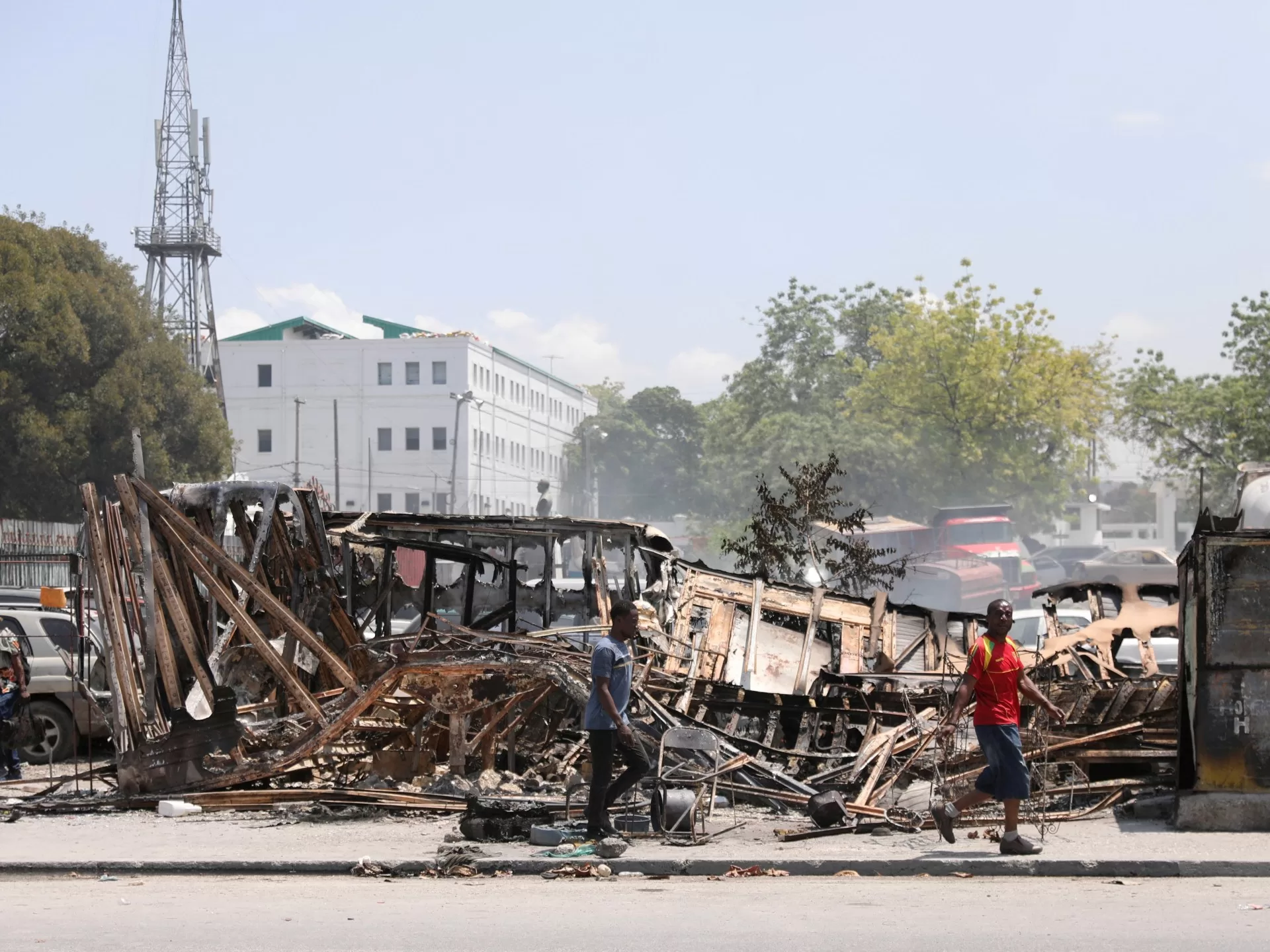Deportations ‘could be a death sentence’, advocates say, as gang violence and instability grip the Caribbean country.
A spokesperson for the US Department of Homeland Security (DHS) told Al Jazeera on Thursday that one of its agencies — Immigration and Customs Enforcement (ICE) — “conducted a repatriation flight of around 50 Haitian nationals to Haiti”.
“Individuals are removed only if they were found to not have a legal basis to remain in the United States,” the spokesperson said in an email.
The brief statement did not say where in the US the flight took off from, or where it was scheduled to land in Haiti. Al Jazeera has requested further clarification.
The Miami Herald first reported on Thursday that US authorities informed Haiti’s Office of National Migration that 74 Haitians were aboard an ICE flight to Cap-Haitien in northern Haiti.
The plane had left the US state of Louisiana and was scheduled to make a stop in Miami, Florida, before continuing to Cap-Haitien, the Herald said. It is the first US deportation flight to Haiti since January.
The US newspaper’s report drew immediate condemnation, with rights advocates accusing President Joe Biden’s administration of sending Haitians into a dangerous and potentially deadly situation in their home country.
“It’s unconscionable for the [Biden] administration to continue deporting people given Haiti’s catastrophic human rights and humanitarian situation,” Nathalye Cotrino, a researcher at Human Rights Watch, wrote on social media.
Haiti has experienced widespread gang violence in recent years, particularly after the assassination of President Jovenel Moise in July 2021 created a power vacuum.
But the already dire situation escalated further in late February, when powerful armed groups attacked prisons, police stations and other state institutions across Haiti’s capital, Port-au-Prince.
🇭🇹The US is resuming deportation flights to #Haiti with 74 Haitians soon to arrive in Cap-Haitien.
It’s unconscionable for the @POTUS administration to continue deporting people given Haiti’s catastrophic human rights and humanitarian situation. 🧵1/2https://t.co/jWMCwUjq9p https://t.co/qjIY8y2MwO
— Nathalye Cotrino (@NathalyeCo) April 18, 2024
The unrest forced Haiti’s unelected Prime Minister Ariel Henry to announce plans to step down and spurred a shaky political transition, which continues to unfold.
Meanwhile, attacks have not abated in Port-au-Prince and other parts of the country.
Hundreds of thousands of Haitians have been displaced, according to United Nations figures, and rights advocates have warned of a deepening humanitarian crisis.
Meanwhile, in the US, activists and lawmakers have urged the Biden administration to stop deportations to Haiti amid the crisis.
“Haiti is facing one of the world’s worst humanitarian crises right now,” US Congresswoman Cori Bush, a member of Biden’s Democratic Party, told reporters in a press call last week.
“The United States government has a moral responsibility to adopt a humane approach to helping Haitian immigrants fleeing these horrific conditions.”
Bush urged Washington to indefinitely suspend deportations, among other measures.
Some 13,000 migrants were sent back to Haiti from neighbouring countries in March, the International Organization for Migration (IOM) recently said.
The US Coast Guard also sent 65 Haitian migrants back to Haiti on March 12 after their vessel was intercepted near the Bahamas.
An upsurge in the already extreme violence in Haiti has left citizens reeling. Gangs control key ports, the largest airport + much of the capital city of Port-au-Prince. People are on the brink of famine. Sending ppl back here could be a death sentence. @potus #StopDeportions https://t.co/5lKEtqUhmm
— Al Otro Lado (@AlOtroLado_Org) April 18, 2024
In addition to stopping such returns, rights advocates and civil society groups have called on the US government to extend and redesignate a programme called Temporary Protected Status (TPS) for Haiti.
The US government grants TPS to nationals of countries where temporary conditions make it too dangerous to return, including cases of armed conflict or environmental disasters like earthquakes and hurricanes.
Recipients can remain in the US without fear of deportation and work in the country. Haiti’s TPS designation is set to expire in early August.
“An upsurge in the already extreme violence in Haiti has left citizens reeling,” US-based migrant rights group Al Otro Lado wrote on X on Thursday after news of the deportation flight first broke.
“Gangs control key ports, the largest airport + much of the capital city of Port-au-Prince. People are on the brink of famine. Sending [people] back [to Haiti] could be a death sentence.”
